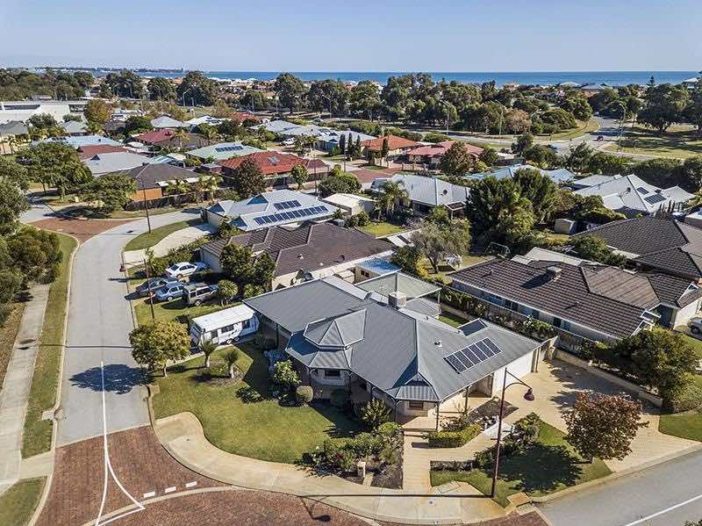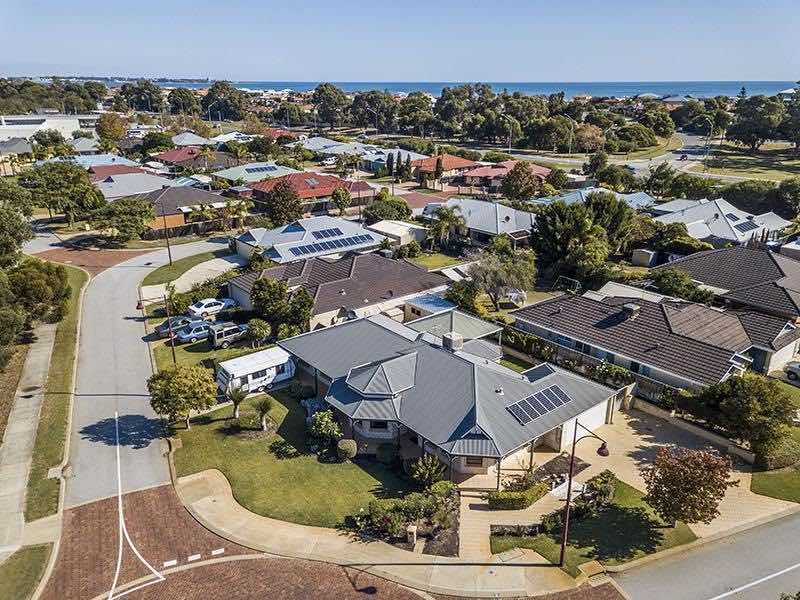

In a week that saw Western Australia marked well behind the rest of the nation on renewables – apart from its rooftop solar uptake – the state set the ball rolling on a “shared storage” trial that will install a Tesla battery on the grid, south of Perth.
The trial – led by government-owned network operator Western Power and retailer Synergy – will connect a 105kW/420kWh Tesla battery to the grid in Meadow Springs, a suburb of Mandurah.
State energy minister Ben Wyatt said on Wednesday that recruitment of household consumers for the 24-month trial had started, with Synergy contacting those eligible by mail.
The solar households chosen to participate will be allowed to “virtually store” excess power from their PV systems, and to draw down on that power during the peak evening period – reducing their exposure to high power prices, while helping to lighten the load on the grid.
At a cost of $1 a day, each household would be able to use 8kWh of the battery storage – during peak time.
They would also be given easy access to (their own) generation and usage data via a Synergy website – “while maintaining reliability of supply from their Western Power grid connection.”
The trial has been in the works for some time now, after the City of Mandurah Council voted unanimously – in March – in favour of taking part.
As we have reported on One Step before, Mandurah is one of WA’s – and Australia’s – top solar postcodes, thanks to a huge uptake of solar among the city’s households and small businesses.
Last year, it was ranked third in the nation’s top 10 solar hotspots, with an uptake of small-scale solar systems (less than 10kW) at 35 per cent and a total installed capacity of 23.5MW.
Indeed, all of WA has been adding rooftop PV at an impressive clip, As this week’s Climate Council report noted, the state now has the third highest proportion of households with solar in the country, at 27 per cent.
And according to the Australian Electricity Market Operator, some 134MW of rooftop solar PV is forecast to be installed, annually, across WA over the next 10 years, resulting in 2,273MW of total installed rooftop solar PV by 2027-28. That compares to 826MW at the end of December.
But it has no state renewable energy target and little by way of a plan to transition its grid – which, as Giles Parkinson has explained, is a bit of a basket case – to the 21st century.
All this means some quick thinking is needed by the network and retailers, on how to manage all this distributed solar, in a way that doesn’t penalise – and further alienate – the consumers that have invested in it, but benefits the grid.
The West Australian reported in August that the government had been looking at ways to boost residential battery uptake, alongside possible changes to the state’s rooftop solar tariffs, that would either wind them back or scrap them altogether.
Meanwhile – as we report here – a community-based project is seizing its own opportunity, by setting up what could be Australia’s first completely privately funded virtual power plant.
The collaboration between Perth-based company Redback Energy and investment outfit SUSI Partners plans to combine the solar and battery storage resources of up to 1000 households and small businesses on the state’s south-west coast – taking those customers 90 per cent renewable for “the cost of a coffee a day.”
The Dunsborough Community Energy Project has also been meeting with WA’s Public Utilities Office, to talk about the benefits to the grid of such behind the meter projects, which offer a tangible energy resource, as well as that elusive asset networks are currently chasing: the hearts and minds of consumers.
But the grid-scale battery takes a different approach, giving Western Power and Synergy a way to rein in solar customers, as well as a more traditional “front of meter” way to pool the state’s booming distributed energy resource.
That said, homes taking part in the trial will not be locked into the program, which, the release says, “will allow … continuing flexibility and choice in deciding how they meet their individual electricity needs.”
Customers will also receive a quarterly activity statement advising of savings to date, using a system developed by Synergy.
“PowerBank is an ‘in front of the meter’ storage trial which allows invited local customers to store excess electricity from already installed solar PV systems to then use it during peak times,” said minister Wyatt in comments on Wednesday.
“This is another Australian milestone for the application of utility-scale batteries for the benefit for customers, drawing on the groundbreaking work by Synergy in its Alkimos Beach energy storage trial.
“For the first time in Australia, a utility-scale battery will be integrated into an established suburb’s network, like Meadow Springs, that has a high level of existing solar PV uptake.
“At the cost of one dollar a day, customers will have access to 8kWh of battery storage to use any time after 3pm each day.
“This trial shows that the WA Government is serious about working with renewables, delivering for taxpayers and planning for our energy future.”

Sophie is editor of One Step Off The Grid and editor of its sister site, Renew Economy. Sophie has been writing about clean energy for more than a decade.

